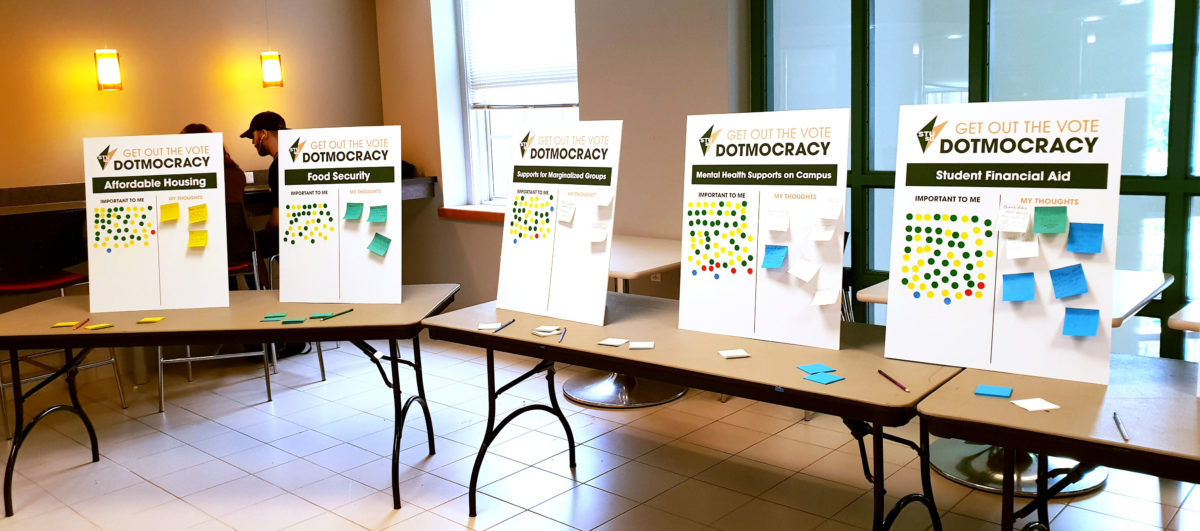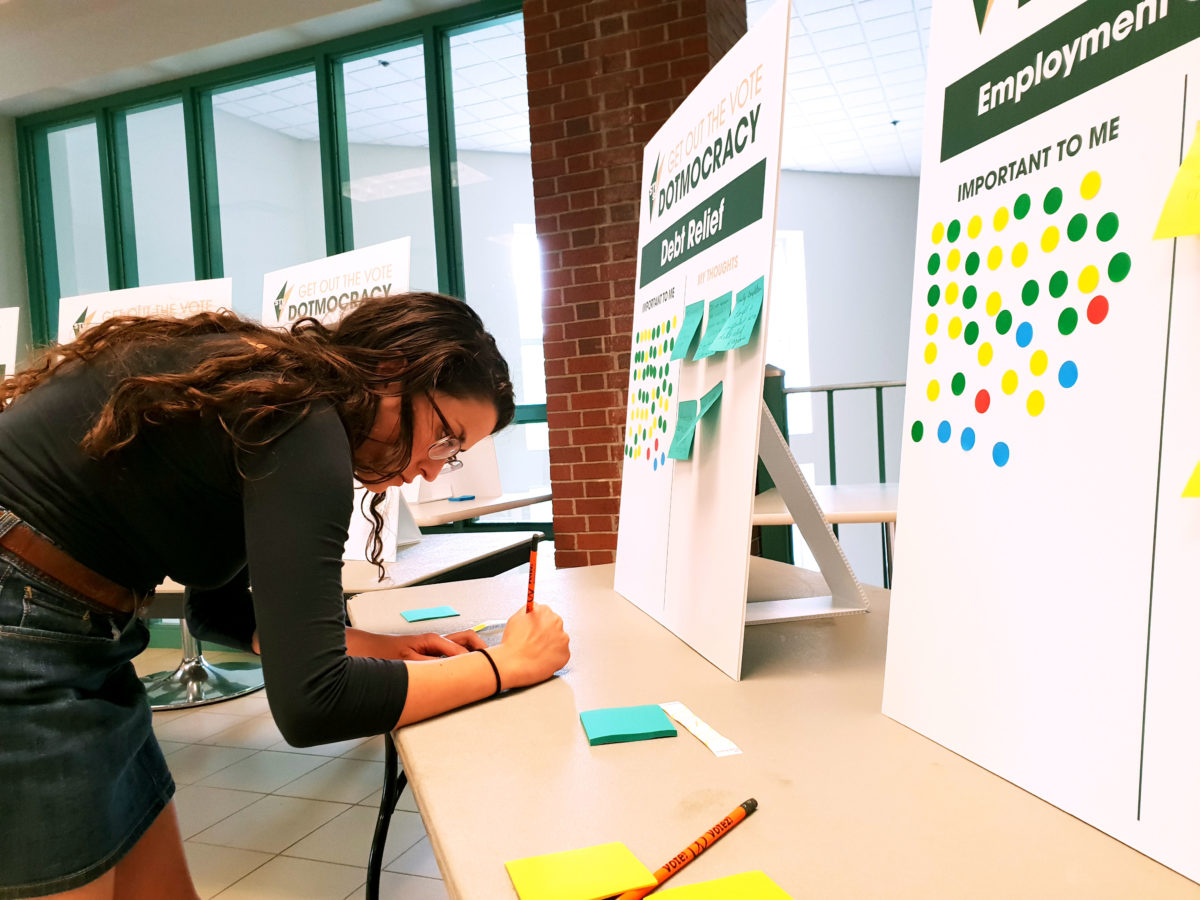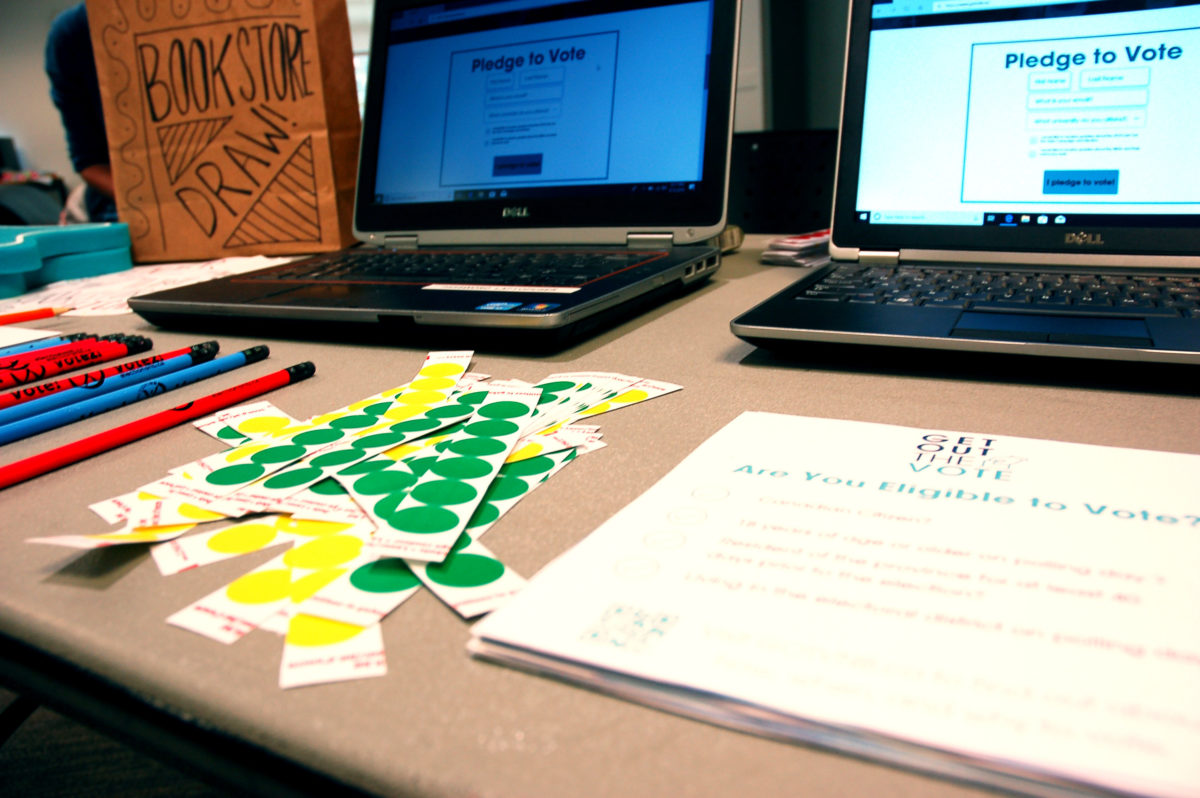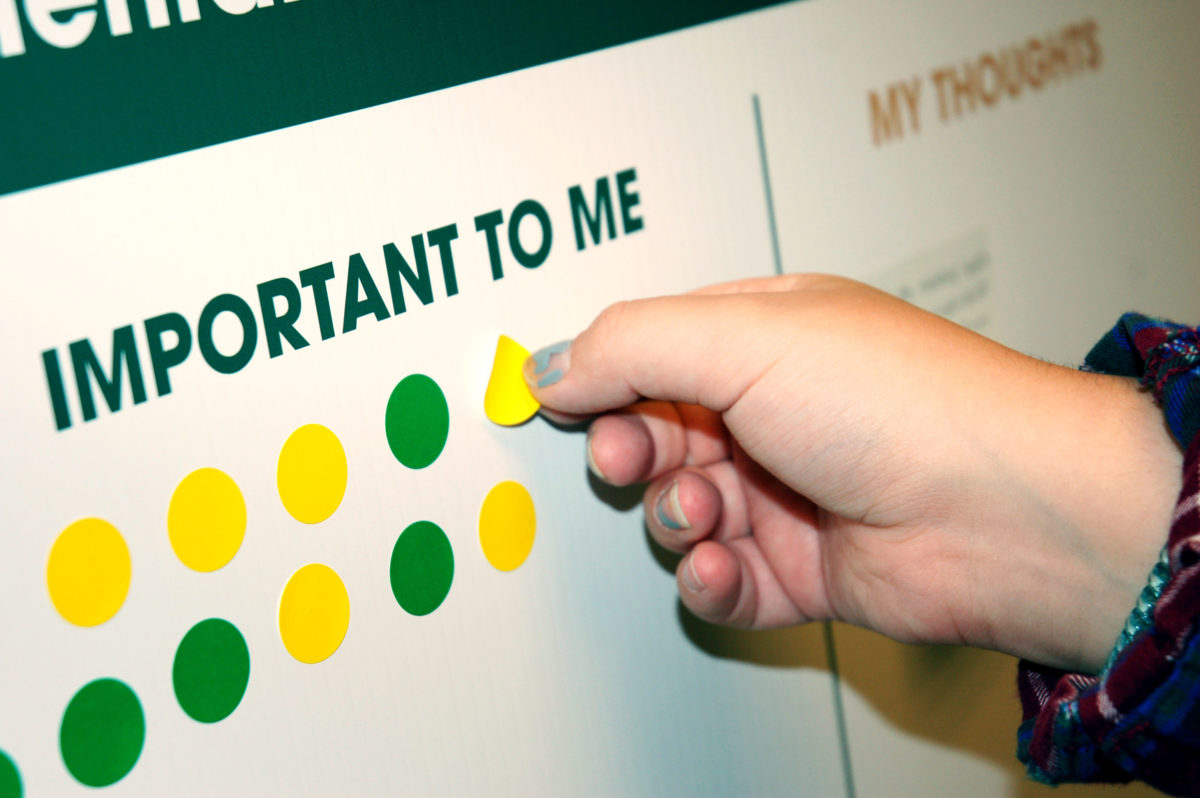As a part of the Get Out the Vote campaign, the St. Thomas University Students’ Union hosted “Dotmocracy,” an event encouraging students to choose what issues are most important to them before voting in the provincial election.
On Sept. 12, nine boards were placed in the off-campus lounge in James Dunn Hall, each marked with a student-related political issue. The political issues included affordable housing, food security, supports for marginalized groups, mental health support on campus, student financial aid, combating sexual violence, experiential learning, debt relief and employment opportunities.
Students who participated were given six ‘dot’ stickers, allowing them to choose which topics, out of the nine, would get their vote (and sticker). Students were also encouraged to leave thoughts on sticky notes.
Emma Walsh, vice-president education of STUSU and an organizer of the event, believes this model represents how democracy works.
“There’s always going to be 10 issues, but maybe you only have the resources to tackle five or six,” Walsh said.

“[These] are issues that if you went to any school across the country, you would find that students are really engaged with.”
Walsh believes mental barriers, such as someone thinking their vote won’t make a difference or they’re not informed enough to make the right decision, can prevent people from heading to the polling station. This event aimed to break down that barrier.
“[We wanted] just to show students that these are issues that you do care about, that do affect your everyday life and you actually have something at stake,” said Walsh.
Student priorities
Leah Mitchell, a second-year student, was one of approximately 47 students that participated in the event.
She thought the nine boards were a good representation of what students care about, but she wished there was one more topic covered: bringing together different religious organizations and groups.
“I feel like if we’re all going to a liberal arts school, [it’s] important for us to be able to understand our differences,” said Mitchell.
Desiree Carr, a third-year criminology major, participated because she enjoys contributing to conversations about student problems.


One of the issues she placed her dot on was food security.
“Access to food and housing should be basic a human right, I feel like those should be prioritized. Just because you [should] have any resources to get food or housing — it should be there,” said Carr.
Danika Phinney, a fourth-year criminology major, reserved two of her dots for mental health.


“I think that mental health supports on campus is really important, because there’s a lot of people that deal with mental health problems, but I don’t think there is enough support for them,” she said.
She also placed two dots on financial aid.
“My mom doesn’t make enough money for me to go to university, so having more financial aid would definitely help. Students loans are definitely beneficial, but [they] don’t always pay for everything.”
Phinney believes the boards represent students’ concerns as a whole.
“I think it’s a really good list … it’s diverse, it’s applicable to everyone.”

